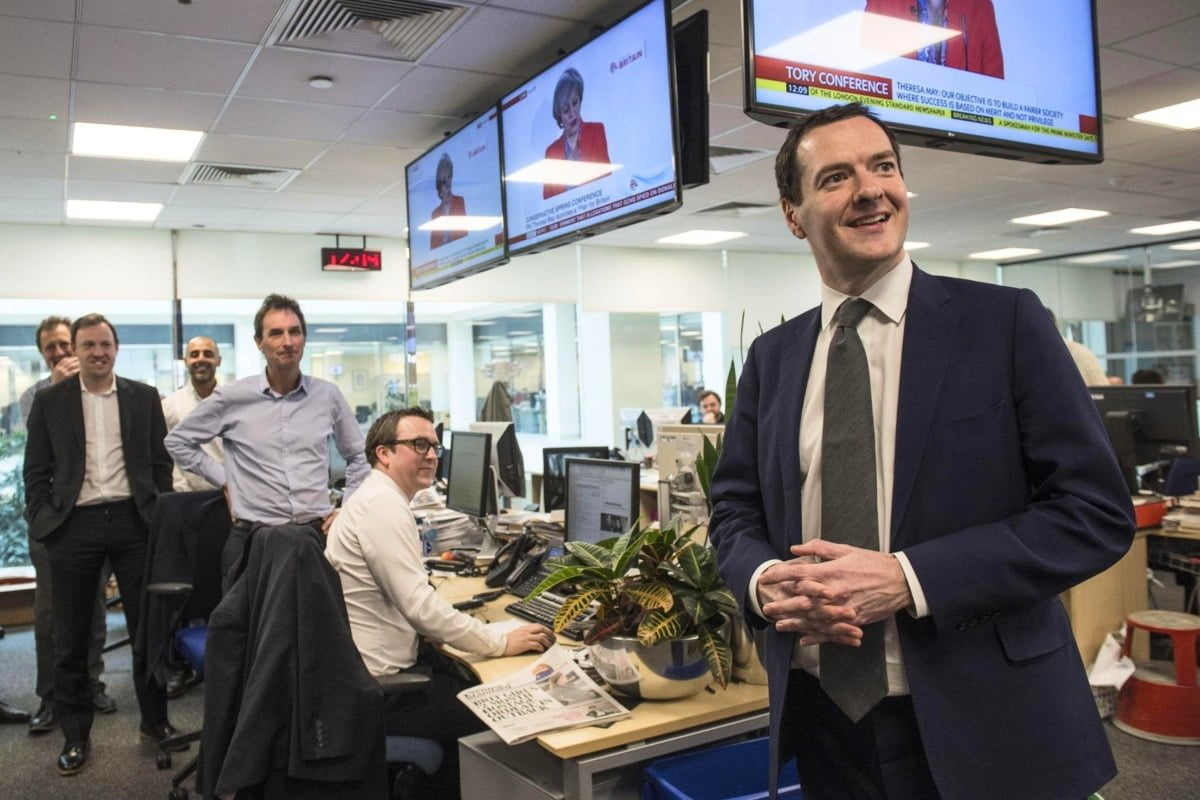The previously informal cosy relationship between the media and big business has now been made official by none other than the oligarch-owned Evening Standard.
If you could put a price tag on ‘eternal’ and ‘inalienable’ human rights, how much would they cost? For the Evening Standard newspaper – edited by former Tory Chancellor George Osborne and owned by Russian billionaire Alexander Lebedev – freedom of the press appears to be worth a grand total of £3 million.
This is what we learned recently, when it was alleged that – as part of its ‘London 2020’ campaign – the Evening Standard sold favourable press coverage to several multinational companies, including Google and Uber.
By now we are used to watching the establishment lurch from scandal to scandal. It’s a mark of the senility of the capitalist system that its representatives often inadvertently publicise business that is meant to be the domain of back rooms and black books. However, these new revelations – about the prostitution of civil liberties through such barefaced cronyism – are particularly stunning and contemptible.
In a world governed by profit, it’s clear that there is a price for everything – including freedom of the press. Collaboration between the media and big businesses is nothing new. But usually it is based on the shared class outlook of the owners of media outlets and corporations: a relationship lubricated with informal chats, thinly-disguised bribes, and advertising arrangements.
It is not often that such collaboration involves actually putting ink to paper. The Evening Standard has apparently simply formalised this hitherto tacit and informal understanding. In doing so, Osborne’s paper has lifted the veil on the cosy relationship between the media and big business, revealing the ruling class in all of its gory, undemocratic detail (probably Osborne’s greatest service to the British people in his entire career…).
Everyone involved in this deal comes out a winner – except of course ordinary people.
Uber has come under fire recently over its unsafe business practices, and Google’s reputation as a tax avoider is less than sterling. Both could do with some good publicity. Meanwhile, the Standard gets a healthy income to prop up the right-wing editorship of George Osborne.
The only people who don’t get a good deal out of this are the rest of us, who are subjected to puff pieces about how wonderful multinational corporations are, instead of any real news or analysis about what’s going on in the world today.
But since when have the needs of ordinary people ever factored into the schemes of big business, super-rich media barons, or Tory newspaper editors?
In a particularly pernicious twist, the ‘London 2020’ campaign was billed as promoting debate on a better and more sustainable future for London. But it is evident that we won’t build such a future by putting it in the hands of companies like Uber, Google, and the Evening Standard.
As long as our economy is based on the unjust and anarchic system of profit, big business will find ways to use its wealth to accumulate ever more, while the rest of us are condemned to make do with less. They won’t let things like freedom of the press, or any other basic human rights, stand in their way.
It is up to us to make our own future, by taking the media and big business into public ownership, under the democratic control of the working class. That way we can be sure that these institutions will serve our interests, and not those of the super-rich.
We’re grateful to George Osborne and the Evening Standard for providing us with the perfect example of why we need to fight for socialism.






